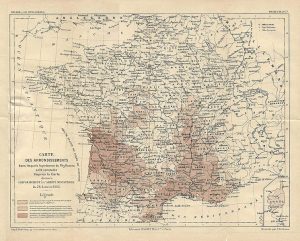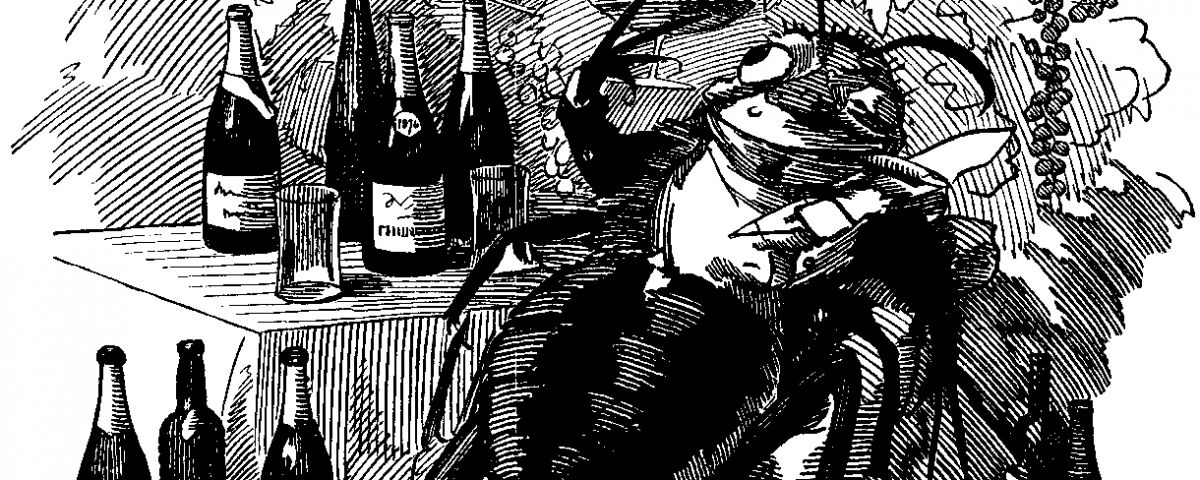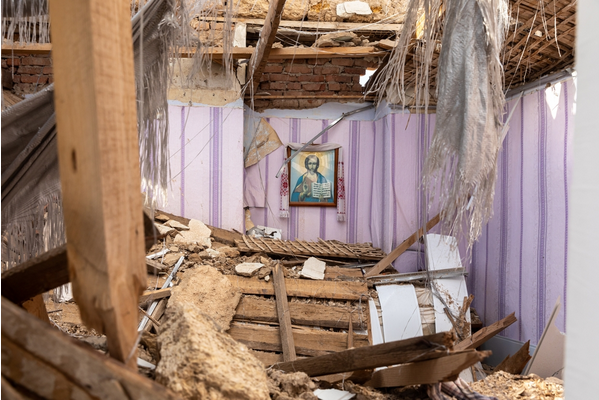


Israel: Reasons for Peace
5 February 2017
Vulnerability of Knowledge and Nuclear
14 February 2017What impact do economic crises have on the level of crime? This is the classic but never really solved question that Roberto Galbiati, – Research at the Sciences Po Department of Economics – Vincent Bignon and Eve Caroli seek to elucidate in their article “Stealing to Survive? Crime and Income Shocks in Nineteenth Century France” (“Voler pour survivre? Crime et chocs de revenu en France au XIXe Siècle”), which will be published in The Economic Journal.
Economic crisis and level of criminality
 These issues are important because crime is known to have a damaging impact on economic growth as it discourages business and talented workers from settling in regions with high rates of crime. If an economic downturn triggers an increase in the crime rate, it could have long-lasting effects by off-putting economic recovery. The challenge in identifying a causal effect between crime and the economy is, however, notoriously difficult: multiple factors can simultaneously affect economic conditions and the propensity to commit crime.
These issues are important because crime is known to have a damaging impact on economic growth as it discourages business and talented workers from settling in regions with high rates of crime. If an economic downturn triggers an increase in the crime rate, it could have long-lasting effects by off-putting economic recovery. The challenge in identifying a causal effect between crime and the economy is, however, notoriously difficult: multiple factors can simultaneously affect economic conditions and the propensity to commit crime.
In order to get around this challenge, Roberto Galbiati and his co-authors take an original approach. They exploit a “natural” experiment that generated a massive negative income shock in France in the 19th century in conjunction.
 Phylloxera, the Attila of the grapevine
Phylloxera, the Attila of the grapevine
The major economic crisis in question concerns France’s most iconic industry: wine production. Thanks to technological advances in transportation in the second half of the 19th century – steam power – a near microscopic insect named phylloxera vastatrix was able to travel and survive the journey from its home in North America to Europe. It arrived in France in 1863 on imported US vines. Totally inoffensive in its original ecological system, the phylloxera proved to be fatal for huge swathes of French vineyards where it literally sucked the sap out of French vines. Between 1863 and 1890, it destroyed about 40% of them, thus causing a significant loss of GDP.
Because phylloxera took time to spread, not all wine-growing districts were hit at the same moment, and because the districts themselves differed greatly in their capacity to produce grapes, not all districts were hit equally. The phylloxera crisis is therefore an ideal natural experiment to identify the impact of an economic crisis on crime because it generated exogenous variation in economic activity in 75 French districts, an unhoped-for spatial breadth!
A uniquely rich data. To conduct this study, authors have used the uniquely rich data on criminal records collected between 1826 and 1936 by the French Ministry of Justice at the departement level. These data represent, to the best of our knowledge, the oldest national official administrative crime record exploited by researchers up to today. They allow them to identify the impact of the crisis triggered on violent and property crimes, as well as on minor offenses.
A substantial increase in property crime rates
 To show the effect quantitatively, Roberto Galbiati and his co-authors collected local administrative data on the evolution of property and violent crime rates, as well as minor offences in order to study whether crime increased significantly after the arrival of phylloxera and the ensuing destruction of French vineyards.
To show the effect quantitatively, Roberto Galbiati and his co-authors collected local administrative data on the evolution of property and violent crime rates, as well as minor offences in order to study whether crime increased significantly after the arrival of phylloxera and the ensuing destruction of French vineyards.
The results suggest that the phylloxera crisis caused a substantial increase in property crime rates and a significant decrease in violent crimes. The effect on property crime was driven by the negative income shock induced by the crisis. In order to survive the negative income shock people engaged in property crimes. At the same time, the phylloxera crisis had a positive impact: due to the decrease in alcohol consumption caused by the shortage of wine, the rate of violent crime was substantially reduced!
From a policy point of view, these results suggest that crises and economic downsizing events can have long lasting effects. By showing that the near-disappearance of an industry – a temporary phenomenon, in this case – can trigger long-run negative consequences on local districts through increased (property) crime, this study underscores that this issue must be addressed high up on the policy agenda in times of crises.
Roberto Galbiati is a CNRS Senior Researcher (CR1) at the Sciences Po Department of Economics
Référence : Bignon, V., Caroli, E. and Galbiati, R. (2017), Stealing to Survive? Crime and Income Shocks in Nineteenth Century France, Econ J, 127: 19–49. doi:10.1111/ecoj.12270



